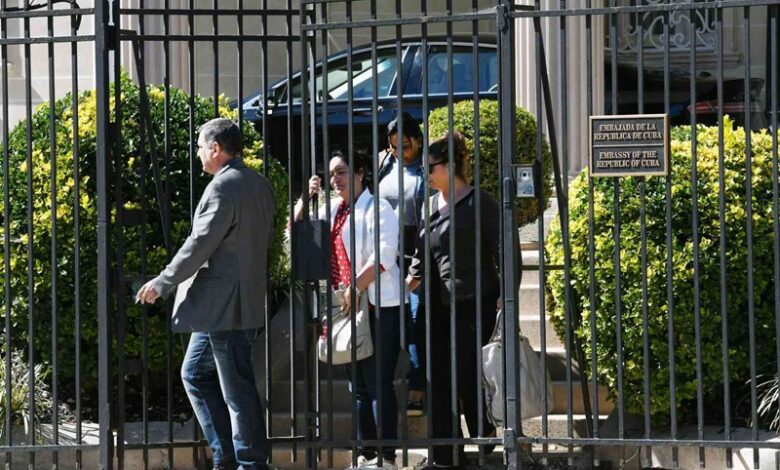International Crimes Imbroglio: How Far Does Immunity Go?
News Mania Desk / Piyal Chatterjee/ 6th January 2025

In early April 2024, reporters from t news agency discovered a document related to the upcoming November G20 Summit. The document states that Brazil would call on the Summit to provide heads of state immunity from being prosecuted by an international criminal tribunal, especially the International Criminal Court (ICC), as long as their nations are not signatories to the international treaty that established the court. As stated in the Reuters piece, Brazil’s position lends support to Russian President Vladimir Putin, an ally of the BRICS (Brazil, Russia, India, China, and South Africa) coalition, for whom the ICC has released an arrest warrant concerning alleged war crimes tied to Russia’s incursion into Ukraine. The Rome Statute, which creates and structures the ICC, is not an agreement that Russia is a signatory to.
After news emerged in November 2023 about French court officials issuing an arrest warrant for the ousted Syrian President Bashar al-Assad to try him in France for war crimes, Brazil reportedly declared its commitment to uphold the principle of immunity for heads of state. The warrant is significant as it corresponds with a ruling made on March 13, 2001, by France’s highest criminal appellate court, the Cour de cassation. The decision appeared to accept that a foreign leader could face trial in France if the allegations pertained to traditional international offenses instead of solely terrorism, for which the court granted immunity at that time.
Prior to the Nuremberg Trials, which began in 1945 and prosecuted Nazi war criminals and key figures for their World War II offenses, there had been no model for a successful international criminal tribunal. Throughout that period, heads of state were immune from the national courts of one another. Nonetheless, persistent conflicts among countries took place during that period, resulting in two World Wars marked by aggression, genocides, war crimes, and crimes against humanity. It was a time of turbulence in amicable ties between nations. It might be unnecessary to directly link the Nuremberg effect — the impact the trials had on global initiatives for justice — to the progress made in international peace and security.
Currently, the discussion regarding official immunity has extended beyond the borders of the United States. Global dialogues, such as the ICC’s warrant for the apprehension of Israeli Prime Minister Benjamin Netanyahu, highlighted the wider implications of Head of State immunity within international law. On November 21, 2024, the ICC released the warrant targeting Netanyahu and ex-Defense Minister Yoav Gallant. Pre-Trial Chamber I set forth plausible grounds concerning claims of potential war crimes and crimes against humanity committed in Gaza from October 8, 2023, to May 20, 2024.
Being the first permanent court ever established, the ICC aims to eliminate impunity for individuals who perpetrate the most atrocious crimes deemed troubling by the whole community. The court’s jurisdiction is limited to offenses carried out by nationals of a State Party or within its borders, focusing mainly on prosecuting individuals for war crimes or crimes against humanity. The legal basis of the court is derived from the Rome Statute, ratified by the UN Diplomatic Conference of Plenipotentiaries during the establishment of an International Criminal Court in 1998 and implemented in 2002.
Enforcing an arrest warrant necessitates that member states detain anyone who enters their territory and transfer them to a detention center in the Netherlands, where the court is situated. The trial cannot proceed unless the defendant is physically present. As the law treats all individuals equally, no immunity exists in line with its objective to eradicate impunity. As stated in Article 27 of the Rome Statute, an individual’s status as a head of state or government, a government or parliament member, an elected representative, or any other official does not, by itself, exempt them from criminal responsibility under the Rome Statute.
In a news release dated November 27, 2024, the French government, as a member state, voiced concerns regarding potential limitations on this provision related to non-member countries such as Israel. Concerning the immunities of States that are not parties to the ICC, the statement highlighted that a state cannot be compelled to act in a manner that contradicts its obligations under international law. These safeguards apply to Netanyahu and other relevant ministries. The Foreign Ministry stated that they should be taken into account if the ICC seeks their arrest and handover.
State Immunity, based on customary international law, safeguards current and former heads of state from legal action under certain conditions. This is based on the concepts of state sovereignty and equality among states. Nevertheless, experts on legal immunity emphasize that heads of state cannot claim immunity before the ICC, regardless of whether their nations have ratified the treaty. The Palestinian territories have ratified the convention leveraging their status as a non-member observer state at the United Nations, despite Israel’s lack of signature.
It is important to highlight that the denial of immunity for state leaders charged with international crimes was a fundamental principle of international law that arose from the Nuremberg trials. Leaders of nations would certainly have thought, because of the Nuremberg effect, that the era of impunity for transnational offenses threatening or disturbing global peace and security concluded with World War II. For a young individual, the notion that holding the same behavior accountable poses a threat to harmonious relationships between nations might be difficult to grasp.






